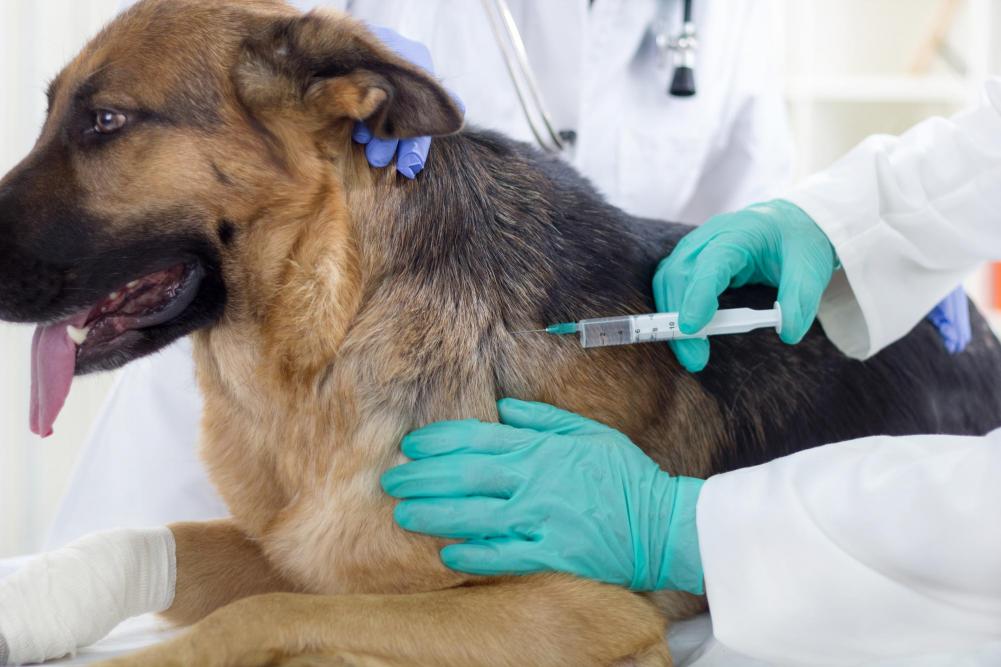
August marks the month of National Immunization Awareness Month. This holiday was designed to bring awareness of the importance of pet immunization. Most pet parents understand that vaccinations are essential for the health of their fur babies and prevent them from getting life-threatening diseases like rabies or heartworm. As the ORIGINAL Hipster Hound, I, Rex, hate getting shots and nasal sprays, but I did some research and now understand just how important they are to cats and dogs.
Immunization Facts
Pet immunizations are split into two groups: core and non-core vaccinations. The core vaccines are the ones that are recommended to all dogs and cats. The non-core vaccines are situational and depend on your pet’s lifestyle. For example, if your pup attends a doggy daycare or if they go to the dog park every weekend, they may need additional vaccinations to stay safe.
Before we had safe vaccines for common pet diseases, many pets would become ill, and in some cases, die from these devastating diseases. Having your pet vaccinated is easy to have done. Most vaccines are given under the skin in the muscle or sprayed into the pet’s nostrils.
A vaccine is simply a small part of the disease causing organism that has been altered so it will not cause disease. When the pet’s immune system is presented with this altered form of the bacteria or virus, it will develop antibodies against the organism to protect the pet if it were to encounter the disease causing organism naturally in the environment.
Core Vaccines for Dogs
- Rabies: This vaccine can be given every year or every three years depending on local laws. It is a legal requirement to have your pet vaccinated for rabies. Rabies is a fatal disease of the central nervous system and is commonly transmitted by saliva to mammals through bite wounds from the infected animal.
- Distemper: Affects the nervous, GI and respiratory systems. Is commonly spread via aerosol route and is usually a fatal disease. It is common to vaccinate annually for distemper.
- Adenovirus 1 (Hepatitis) & Adenovirus 2: These viruses can cause liver and respiratory diseases. The liver form of the disease is commonly fatal. Usually given as an annual vaccination.
- Parainfluenza: This virus commonly causes respiratory disease. It is not usually fatal by itself but can lead to serious secondary infections. Annual vaccination is recommended
- Parvovirus: Usually affects young dogs and possibly old unvaccinated dogs. Severe disease that affects the GI tract and is extremely contagious. Annual vaccination is recommended.
Non-Core Vaccines for Dogs
- Leptospirosis: Dogs are usually infected by drinking contaminated water. It attacks the kidneys and if not properly treated can cause death. Annual vaccination is recommended for dogs at risk.
- Bordetella: Aerosol transmission and causes respiratory infections and if left untreated can lead to secondary serious diseases like pneumonia. Usually vaccinate annually for dogs at risk.
- Lyme Disease: It is a tick transmitted disease and can cause immune, joint and nervous system problems. If untreated it can be devastating for the pet. Annual vaccination is recommended for at risk dogs.
Core Vaccines for Cats
- Rabies: Just like in dogs, vaccines can be given every year or every three years depending on local laws. It is a legal requirement to have your pet vaccinated for rabies. Rabies is a fatal disease of the central nervous system and is commonly transmitted by saliva to mammals through bite wounds from the infected animal.
- Distemper (Panleukopenia): Can cause GI problems and extremely low white blood cells that help fight off infection. Usually transmitted through body fluids. Annual vaccination is recommended.
- Viral Rhinotracheitis: Causes upper respiratory symptoms and can lead to more serious infections. More serious in kittens. Annual vaccination is recommended.
- Calicivirus: Can cause upper respiratory problems and infections in the mouth. Can also lead to more serious secondary infections. Usually vaccinate annually.
Non-Core Vaccines for Cats
- Feline Leukemia: Spread through body fluids. Causes anemia, immune suppression and can cause cancer as well. Is a slow-to-develop disease that can be fatal. Annual vaccination recommended
- Feline Immunodeficiency Virus: Compromises the immune system and the cat is susceptible to other serious diseases. Spread primarily through saliva. Annual vaccination.
- Bordetella: Like in dogs can cause upper respiratory problems leading to serious secondary infections. Aerosol transmitted. Annual vaccination.
- Chlamydia: Can cause upper respiratory infections and transmitted by sneezing and nasal discharge. Annual vaccination is recommended.
- Feline Infectious Peritonitis: Is a mutation of the coronavirus that happens in the cat causing infection of the cells that line the abdomen. It is a painful and usually fatal disease. There is a commercially available vaccination for it but most experts question its effectiveness.
It is always best to talk to your veterinarian to decide what vaccines are appropriate for your pet based on the pet’s risk of exposure to a specific disease, the part of the country you reside in, and local laws. Stay healthy!
Woof,
Rex, The Original Hipster Hound

Leave a comment